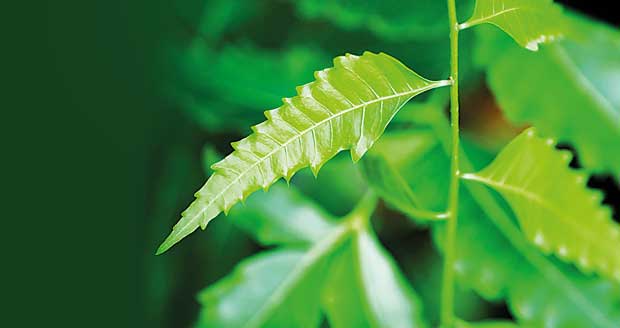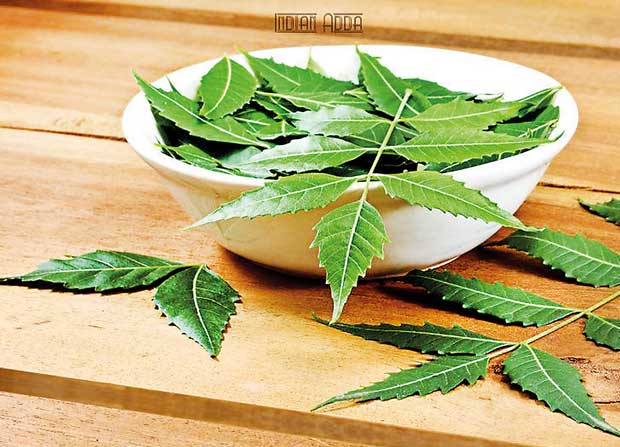07 Jun 2017 - {{hitsCtrl.values.hits}}

By Gayan Suriarachchi
The Biology, Molecular Biology and Biotechnology Institute of the Colombo University claims that for the fist time in the world, they have found that a chemical compounds extracted from the Margosa (Azadirachta indica) plant are capable of destroying cancer stem cells.
The experts of the BMBBI say they were able to prove the capabilities of the substance extracted from the Margosa tree, which is regarded as a treasure of medicine through an internationally accepted advanced scientific research methodology.
Dr. Sameera R. Samarakone and Senior Prof. Kamani Thennakone led the research team comprising Dr. Meran Ediriweera, Dr. Punya Piyathilaka, Dr. Asitha Siriwardena, Kathika Mayan, Daniel, Rana Mohan, Laxmiga Tharmaraja, Uma Rajagopalan, Kaniska Senathila and Prof. Ira Thabrew.
Prof. Nedra Karunarathna and Dr. Nuwanthi Katuwawela assisted the research work by deploying Nano Technology techniques. The first stage of the research fund was received from the Biochemical Molecular Biology and Biotechnology Institute and the National Science Foundation is providing the financial contribution from the beginning of 2017.
“The chemical compounds presently being used to treat cancer is hardly effective in destroying the cancer stem cells. Therefore, in our research we were able to find new chemical compounds capable of destroying the specific protein that directly attributable to the growth of cancer. With such compounds, the cancer could be definitely eliminated”, an expert in the research team said.

“From the beginning of this research project in 2013, we have been engaging in the research process using 35 chemical compounds extracted from plants grown in Asia to find a chemical compound capable of suppressing the protein that causes the growth of cancer cells. Through this process, we deployed the advanced computer software. At this stage, we were involved only in the forecasting research.”
“We used the technique known as Molecular Docking with super computer technology. We were trying to determine how DNA, RNA and protein make changes in the cells of our bodies and the cells of plants, in combination with another protein or chemical compound.”
“The research process was similar to the ‘lock and key mechanism’. However, we could forecast that the chemical substance found in the margosa tree is rich in medicinal properties which suppresses the stem cancer cells, after merging with specific protein in the cancer cells. We could also forecast the possibility of eliminating cancer using this compound”.
To affirm the forecast, the BMBBI research team later had to carry out tests using cancer cells obtained from a human embryo. It had shown the increased effectiveness of the chemical substance on cancerous cells over the chemical compounds used in clinics. “We also did research to verify that it had no any adverse effects on the blood cells in the human body.”
“BMBBI also engaged in a separate research in parallel to ascertain the probable advancement of the medicinal properties of the compound deploying Nano Technology. In this process, inserting the chemical compound in specially processed nano particles was introduced to the cancerous cells in the breasts and lungs. This showed a tenfold increase of the medicinal property of the compound that was processed with the nano technology over the pure chemical compound.”
“The Institute has already developed a new mixture of the chemical through Nano Technology that can be directly applied to the breast stem cancerous cells. Anticipate the patent license for the product. The results of the research carried out by the team has been published in internationally recognised science magazines. The relevant authorities seem to be still ignorant of the existence of research projects of this nature within the country. A large amount of money is needed for these research works. Our effort are directed towards the benefit of the future generation and our Institute endeavors to introduce our own innovation for clinical use all over the world within the next ten years,” Professor Samarakone of the BMBBI said.
20 Nov 2024 2 hours ago
20 Nov 2024 3 hours ago
20 Nov 2024 3 hours ago
20 Nov 2024 3 hours ago
20 Nov 2024 4 hours ago